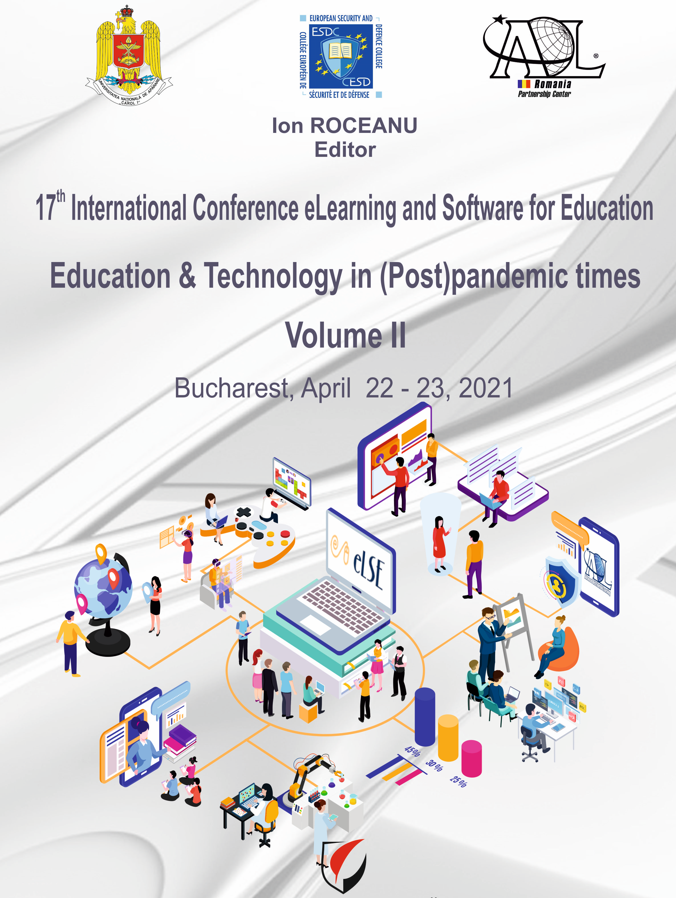METHODOLOGICAL BASES FOR DISTANCE COURSE DESIGN “PROFESSION-ORIENTED GERMAN”
METHODOLOGICAL BASES FOR DISTANCE COURSE DESIGN “PROFESSION-ORIENTED GERMAN”
Author(s): Angelina I. Dubskikh, Anna V. Butova, Olesya V. Kisel, Evgeny А. SaponSubject(s): Foreign languages learning, Adult Education, Methodology and research technology, Distance learning / e-learning
Published by: Carol I National Defence University Publishing House
Keywords: distance learning; profession-oriented German; ITs; education portal; postgraduate engineering students;
Summary/Abstract: The authors of the study describe the methodical and linguodidactic specifics of course design “Profession-oriented German” within the FL course for postgraduate engineering students. The relevance of the study lies in the fact that this course was designed jointly by teachers and students and was the result of distance work during the COVID-19 pandemic. The novelty of the study lies in the fact that the communicative-activity approach in independent work has been transferred to the distance learning. The purpose of the research is to describe the internal structure of the course; show what professional, linguistic and speech competencies are formed with this distance course; do a pedagogical experiment demonstrating the course possibilities in the implementation of “Profession- oriented German” distance learning for postgraduate students; prove the innovativeness and productivity of the distance learning model in the Master's degree programme. The materials of the research are e-learning manuals, createded by the teachers of the department; the discipline work program; results of students’ questionnaire. Descriptive, project-based, comparative, and statistical methods are applied in the study. While doing the experiment, the innovation and productivity in the transformation of a classroom course into a distance one was proved, which are manifested in the following: 1) the ability to develop students’ professional, communicative and linguistic competencies; 2) the development of students’ individual trajectory; 3) expanding socio-cultural potential; 4) the development of students’ intellectual potential; 5) the intensification of the learning process. As a result of the experiment 1) the methodology and technique of using distance technologies in organizing the project activities for postgraduate students are described; 2) an algorithm for constructing a distance course in linguistics in the Master's degree programme is designed 3) methodologies and techniques for the use of ITs in the formation of a new Russian university model is developed.
Journal: Conference proceedings of »eLearning and Software for Education« (eLSE)
- Issue Year: 17/2021
- Issue No: 02
- Page Range: 368-375
- Page Count: 8
- Language: English

